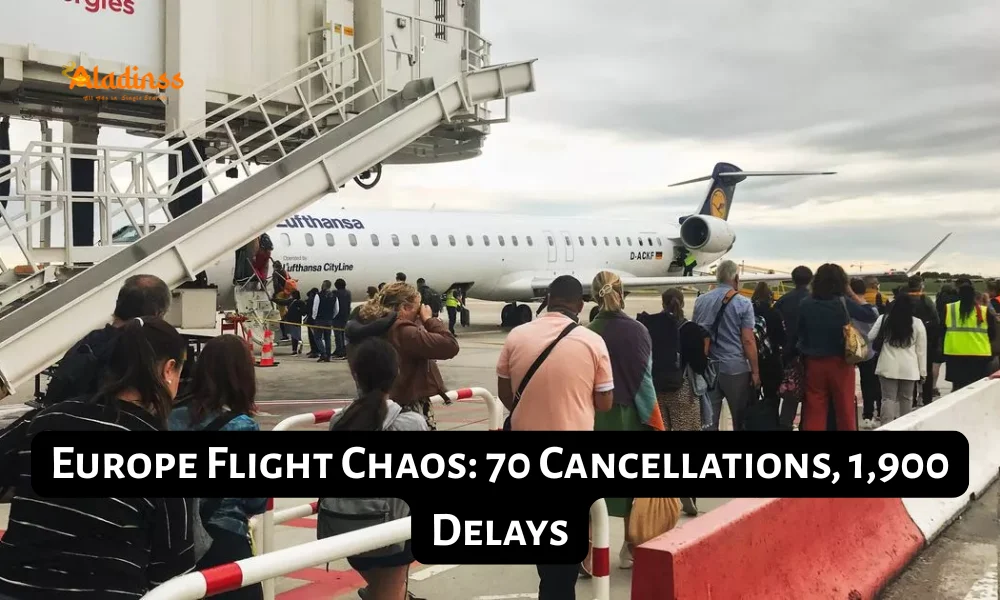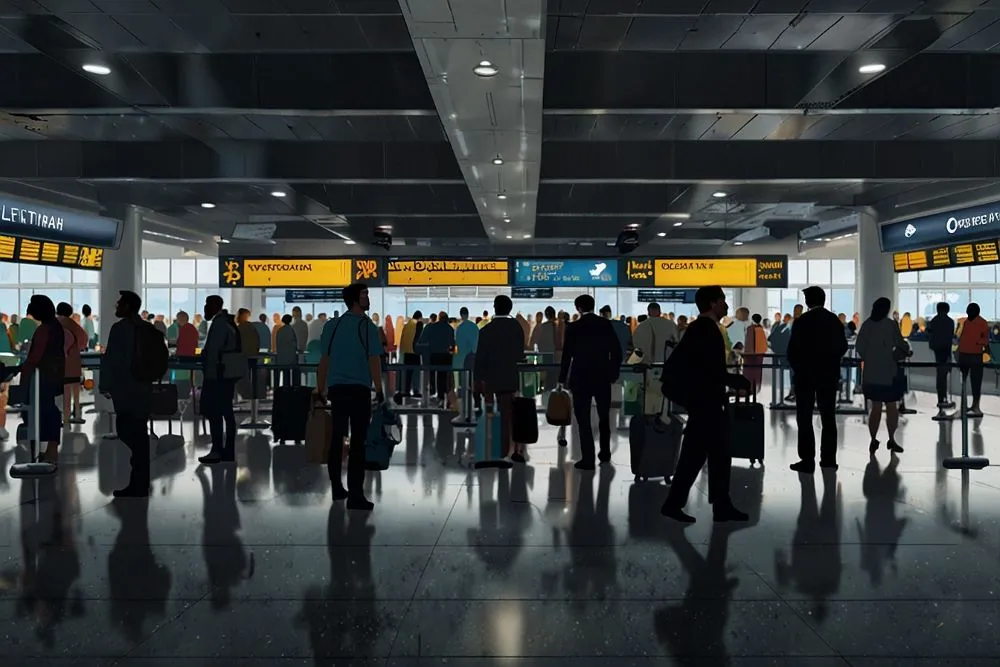Europe Flight Chaos: 70 Cancellations, 1,900 Delays

Thousands of Travelers Isolated in Europe Amid 70 Flight Cancellations, 1,900+ Delays
Thousands of travelers in Europe found themselves stranded after widespread travel chaos rocked major capitals. Airlines such as Finnair, British Airways, Air France, Lufthansa, and KLM faced 70 flight cancellations and over 1,900 delays across hubs in Finland, the UK, France, Germany, and the Netherlands. Airports in Helsinki, London, Paris, Munich, and Amsterdam bore the brunt of the disruptions, exposing critical weaknesses in contingency planning and operational resiliency.

The figures are stark: 70 canceled flights and nearly 2,000 delays. Airlines like Air France and easyJet recorded significant disruption totals, while Finland’s flag carrier and European heavyweights like Lufthansa also suffered. The cascading effects rippled through major airports, leaving passengers scrambling for alternatives and enduring long waits.
Also Read: Europe Imposes New Travel Restrictions 2025
Flight Disruption Overview: Cancellations & Delays
Yesterday, European air travel was severely affected: **70 flights cancelled** and **1,978 delays** recorded across multiple carriers. easyJet alone contributed 407 delays. The disruption disproportionately affected flagship airlines such as Air France, Finnair, Lufthansa, and KLM, with a ripple effect across connecting flights and passenger itineraries.
Below is a breakdown of airlines by cancellations and delays:
- Air France: 11 cancellations / 189 delays
- Finnair: 9 / 68
- Lufthansa Cityline: 9 / 15
- easyJet: 8 / 407
- Vueling: 6 / 263
- Lufthansa (mainline): 3 / 164
- SAS: 3 / 35
- KLM: 2 / 115
- British Airways: 2 / 82
- Plus smaller carriers: Air Baltic, Brussels Airlines, Swiss, etc.
Airport-Level Impact Across Europe
Looking at departure hubs, 59 flights were canceled and 1,801 delayed. Barcelona led with 305 delays, Munich registered 244, and Paris’s Charles de Gaulle saw 202 delays. Cities like Helsinki and London also saw significant disruption, making it a continental-level crisis for air travel operations.
Among origin airports: Munich (6 cancellations / 244 delays), Barcelona (5 / 305), Helsinki (5 / 44), CDG (4 / 202), Orly (4 / 103), Amsterdam (3 / 174), Frankfurt (2 / 153), London Heathrow (2 / 108), Milan Malpensa (2 / 72), and others across Europe.
Destination Airports Also Hit Hard
On the receiving end, destination airports were not spared: 57 cancellations and 1,682 delays tallied. Barcelona saw 245 delays, Munich 190, and CDG 177. Heathrow, Amsterdam, Frankfurt, and others also contended with heavy backlogs and schedule disruptions.
Major affected airports by destination included Munich (6 / 190), Barcelona (5 / 245), CDG (5 / 177), Heathrow (4 / 117), Helsinki (4 / 45), Amsterdam (3 / 114), Paris Orly (3 / 96), Palma (3 / 101), and more.
Routes Under Strain: Key Hubs Under Fire
Travel routes connecting hubs like Helsinki, London, Paris, Munich, and Amsterdam were deeply affected. Flights operated by Finnair, British Airways, Air France, Lufthansa, and KLM on these axes faced cascading delays and cancellations, leaving passengers stranded mid-trip or unable to depart altogether.
Many stranded travelers scrambled for alternative routes, held in transit for hours, or experienced cascading misconnects - a stark reminder of how fragile air network resilience can become under high stress.
Root Causes and Industry Pressure
While specific causes haven’t been publicly detailed, such widespread disruptions often stem from a combination of staffing shortages, air traffic control constraints, adverse weather, or logistical breakdowns. Airlines and airports alike must review contingency protocols and resource allocation to reduce future impact.
Analysts warn that the frequency and scale of such events demand long-term investment in robustness: smarter crew scheduling, dynamic recovery plans, interline cooperation, and increased buffer times between flights may all be necessary.
Advice for Affected Travelers
If you're caught in such disruption, here are steps to manage it:
- Contact your airline immediately for alternate rebooking or refunds.
- Monitor airline apps and airport screens for real-time updates.
- Claim passenger rights - depending on region (e.g. EU regulation 261) - for compensation or assistance.
- Consider switching to nearby airports or alternate carriers.
- Pack essentials in carry-on luggage in case your checked bags miss connections.
Looking Forward: Strengthening Air Network Resilience
To prevent such large-scale breakdowns, stakeholders-airlines, airports, regulators-must collaborate on system resilience. Investments in predictive analytics, cross-carrier recovery protocols, resource redundancy, and agile operations will be vital.
In the meantime, travelers should stay vigilant, expect delays, and maintain flexibility when planning itineraries across Europe’s busiest air corridors.
Thousands of travelers were isolated in Europe, including Finland, the UK, France, Germany, Netherlands, as Finnair, British Airways, Air France, Lufthansa, and KLM faced 70 flight cancellations and over 1,900 delays across Helsinki, London, Paris, Munich, Amsterdam. The chaos underscores the urgent need for better operational resilience across European air networks.
Comment / Reply From
No comments yet. Be the first to comment!







